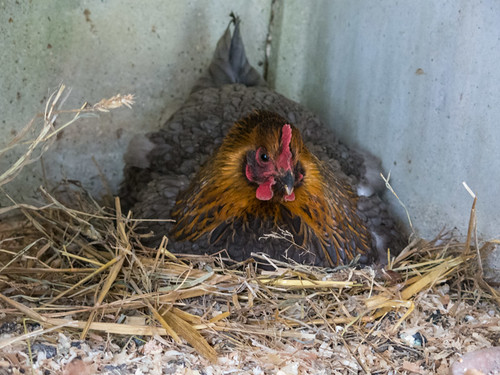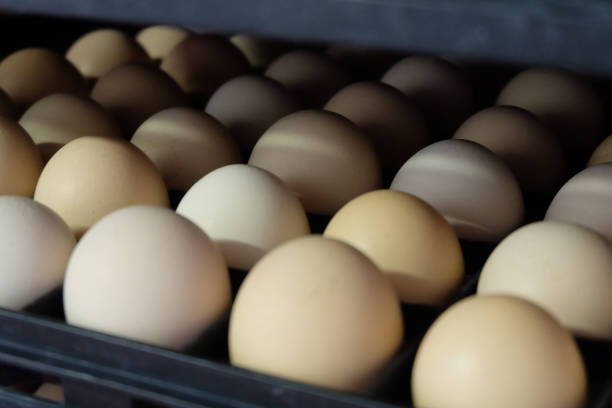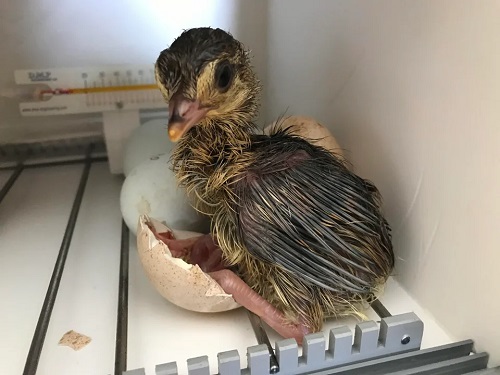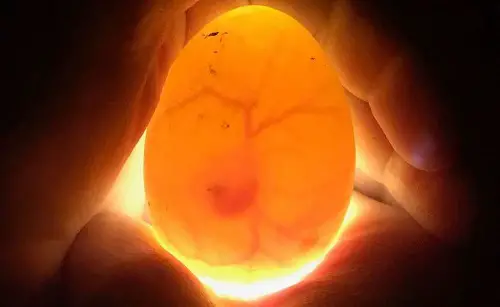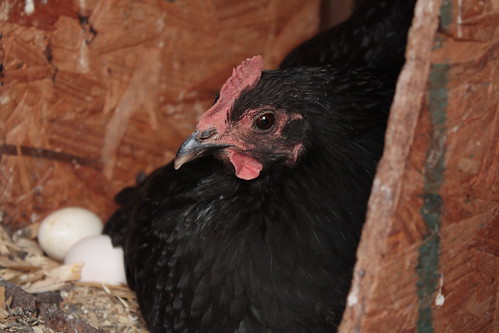Table of Contents
Broodiness is when a hen’s natural instincts tell her it’s time to start a family. This usually happens during the spring and summer months although hens can suddenly decide to go broody at other times of the year too. However, if you don’t have a cockerel or cock, your hen will be sitting on her unfertilised eggs forever and they will never hatch. If a hen is allowed to remain broody, she may rarely leave the nest, even to eat and drink, and, ultimately, this can lead to your hen dying.
Signs of broodiness
Broodiness can be subtle at first, but you will recognise the signs :
- Refusing to leave the nest
- Fluffing up her feathers
- Sitting on eggs laid by other hens as well as her own.
- Clucking loudly and appearing distressed when someone goes near.
- Having a hot body
- Developing bare patches on her chest and becoming more aggressive towards other hens as well as humans.
Some breeds tend more towards broodiness than others, such as silkies and pekins and, understandably, commercial egg producers will look to breed these traits out of their high-performing hybrids as it creates problems for them. Interestingly, once one hen becomes broody, it can be quite contagious so it is important to cure her as soon as possible.
How to Cure a Broody Hen
- Isolate her from the coop, especially the nesting box, by blocking the access with a large rock or some wood.
- Construct a separate wire floored cage for her that can be raised off the ground. This will make it difficult for her to squat.
- A rise in internal body temperature usually causes the urge to go broody so try submerging her lower half in a bucket of cold water or make some ice cubes in the freezer and swap them for the eggs she is sitting on.
- Try holding her at waist height and allowing her to flutter to the ground a few times to cool her down underneath.
- If you can get some light into the nest it will be much less appealing to your hen who prefers a dark and cozy environment
- Collect eggs as soon as possible from the nesting box
Your broody hen should always have access to food and water and you should keep an eye on her as she will not look after her health as well as she ought. Lack of food and water can cause poor general health and as she will not be dust bathing there will be an increase in the risk of mite infestation.
The change of environment that you make and the alteration of her living conditions will soon take her mind off sitting on eggs all day. Don’t delay in trying to break the broodiness within your hen. The longer you allow it to continue, the longer you will have to wait before she starts laying eggs again and earning her keep.
How to Stop Broody Hens
However, broodiness is not necessarily a negative thing. You may want eggs to hatch out to replace stock or to add to your existing flock. What could be more natural than a hen doing the job that nature intended rather than leaving you to artificially incubate them using egg incubations? Even if there is no cock in your flock, it is relatively easy to purchase fertile, hatching eggs and set them under your broody hen.

